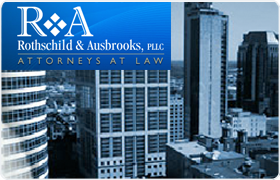Cumberland Furnace Bankruptcy & Debt Lawyer, Tennessee
Sponsored Law Firm
-
 x
x

Click For More Info:
-
Rothschild & Ausbrooks, PLLC
1222 16th Ave. South, Suite 12 Nashville, TN 37212» view mapBankruptcy Filing, Chapter 7, Chapter 13 You Are Not Alone. We Can Help.
Our law firm encourages communication. We respond to calls and e-mails promptly. This is your case, and you will be involved every step of the way.
800-966-8531
Joseph Christopher Hall
Administrative Law, Reorganization, Natural Resources, Products Liability
Status: In Good Standing Licensed: 15 Years
Gregory P. Patton
Class Action, Limited Liability Companies, Business Organization, Dissolution
Status: In Good Standing Licensed: 34 Years
Brian Lee Hill
Divorce & Family Law, Criminal, Bankruptcy, Bankruptcy & Debt
Status: In Good Standing Licensed: 19 Years
Eric J. Yow
Pharmaceutical Product, Family Law, Collection, Products Liability
Status: In Good Standing Licensed: 18 Years
Greg Patton
Class Action, Limited Liability Companies, Business Organization, Dissolution
Status: In Good Standing Licensed: 34 Years
Eric Matthew Bittner
Commercial Real Estate, Wills, Bankruptcy, Bankruptcy & Debt
Status: In Good Standing
Joel Wallace
Criminal, Federal Appellate Practice, Legislative Practice, Credit & Debt
Status: In Good Standing Licensed: 19 Years

 Mary Ausbrooks Nashville, TN
Mary Ausbrooks Nashville, TN Contact UsCall or Email
Contact UsCall or Email LinkedIn
LinkedIn
